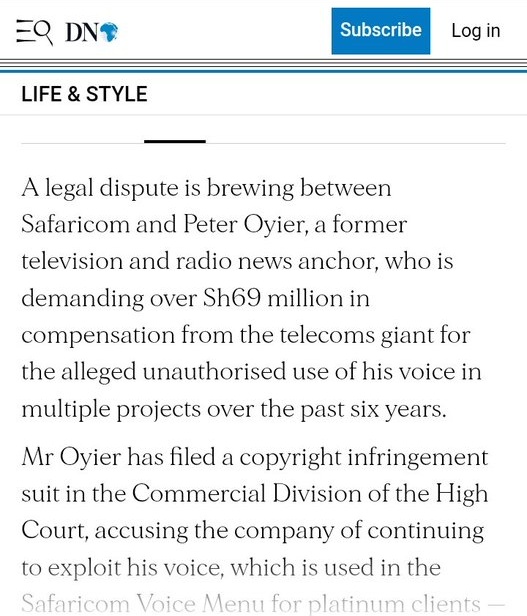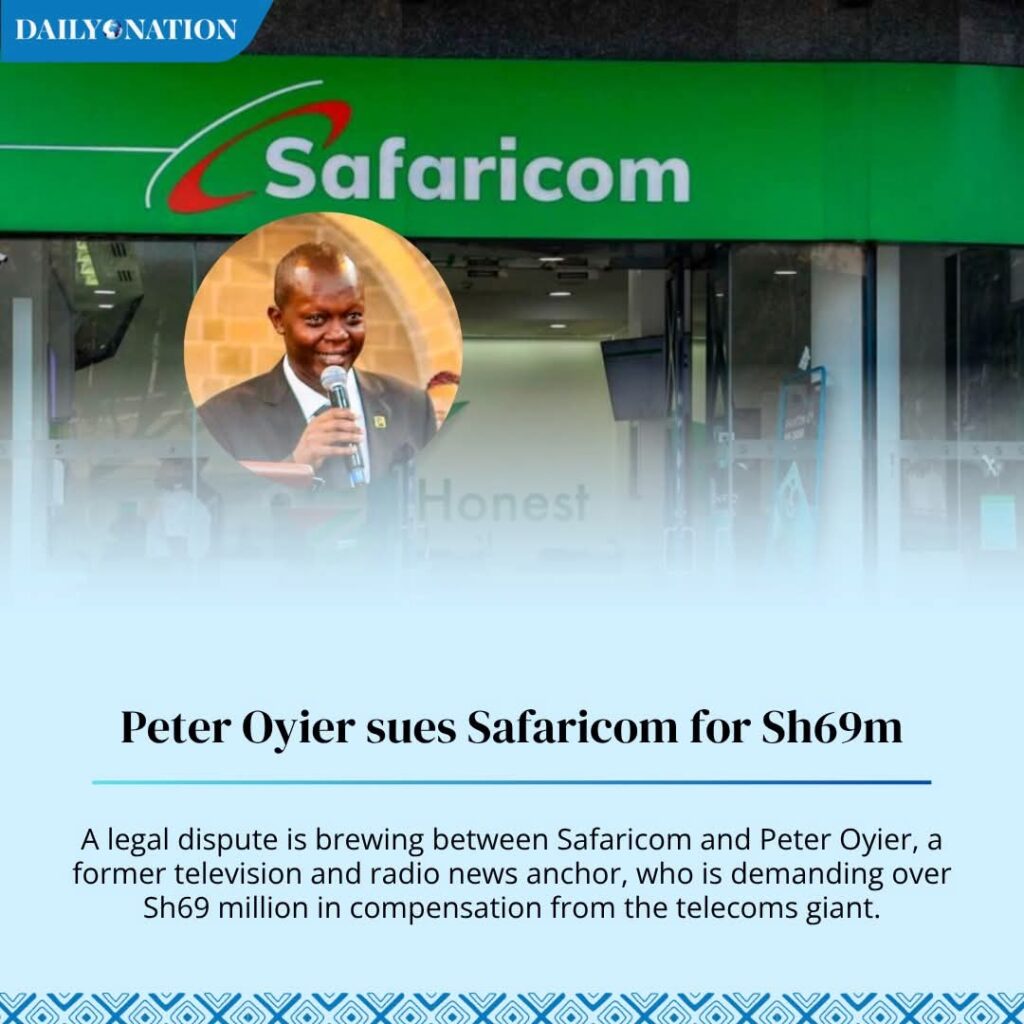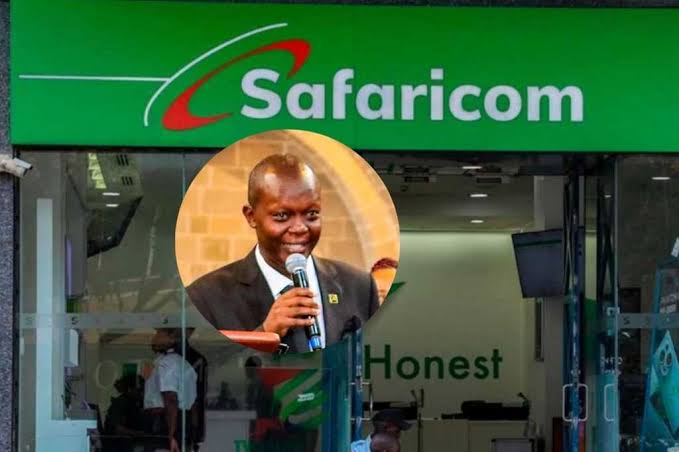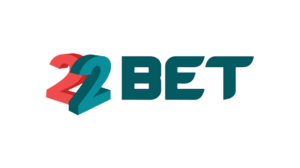When a company as powerful as Safaricom is dragged to court by a single creative, it immediately raises questions about fairness in corporate practices.
Peter Oyier, a respected voice-over artist and former news anchor, is demanding over Sh69 million from Safaricom, claiming they continued to use his voice even after their licensing agreements ended.
He says his voice was used for six years on Safaricom’s Interactive Voice Response system targeting high-value platinum clients yet when the contracts ended, they kept using his voice without permission or payment.

This isn’t just about money. For a voice artist, continued use without consent damages their brand identity and affects future opportunities.
In Oyier’s case, he says the unpaid use made him lose jobs and reduced his value in the market.Safaricom’s response?
They deny everything, claiming they had no binding agreement with Oyier himself and that there was no direct relationship. That kind of legal loophole might work in court, but it doesn’t sit well with the public.
The campaign #PayPeterOyierNow is gaining momentum online. People are saying enough is enough creatives deserve to be paid fairly. The fact that such a huge company, with massive profits and over 50 million customers, could allegedly exploit one individual’s work and refuse to pay is disturbing.

This case is not an isolated incident. In July, Safaricom was already ordered to pay Sh55 million to 17 of its former managers after a court found their rights had been grossly violated.
That judgment cast a shadow on Safaricom’s treatment of employees. Now with Oyier’s case, the focus has shifted to how they handle intellectual property and the creatives behind their polished customer services.

The real issue here is bigger than just one voice. It’s about how companies treat the people behind their brands. Without the voice artists, the campaign visuals, the tech developers, and the content creators, companies like Safaricom wouldn’t be what they are.
Ignoring their contribution and avoiding rightful payment reveals a gap in corporate ethics. The fact that Oyier had to resort to emails and legal letters before getting no proper response and finally taking legal action shows a company unwilling to do the right thing unless forced.
Safaricom has a chance to show leadership and accountability by resolving this matter fairly. If they continue to deny and deflect, the damage to their public image may grow deeper.





















Add Comment